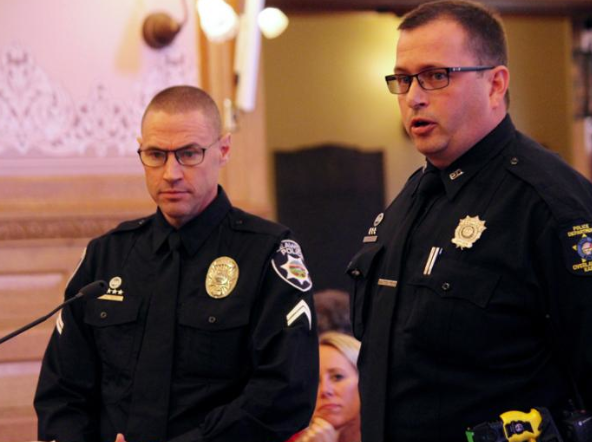By DAVE RANNEY
A key legislator has expressed support for a proposal that would allow behavioral health treatment facilities to hold people in crisis situations for up to 72 hours in an effort to keep them out of jail and out of a state hospital.

“We have to get serious about there being alternatives to locking people up when the driving force behind their involvement with the criminal justice system is mental illness and/or substance abuse,” said Rep. John Rubin, a Republican from Shawnee and chairman of the Joint Committee on Corrections and Juvenile Justice Oversight, which met at the Statehouse.
Rubin said he expects the proposal, which is still in draft form, to be debated during next year’s legislative session.
“The concept is a good one, and I think it will have broad support,” he said. “But the devil is in the details, and it’s those details that are going to have to be worked out.”
The proposal would give Kansas communities the option to open secure receiving centers that would be allowed to hold people who appear to be seriously mentally ill and in crisis for up to 72 hours.
The admissions would be involuntary, and patients would not be allowed to leave early unless they are assessed as unlikely to harm themselves or others.
Under current law, involuntary patients cannot be held for more than 24 hours — 48 hours on a weekend — without first being taken to court and having a judge decide whether they pose a danger to themselves or others.
These patients often end up in jail or in a state hospital because they are uncooperative and have nowhere else to go.
“Taking someone to jail has been the solution for law enforcement for years,” said Tom Keary, a crisis intervention officer with the Overland Park Police Department. “But it’s not a solution, because that person isn’t going to be effectively treated while he’s in jail. He’s going to recidivate, and we’re going to be dealing with him again.
“We’ve got to get away from that. We’ve got to take a problem-solving approach.”
‘No wrong door’
Julie Solomon, chief strategic management officer at Wyandot Mental Health Center in Kansas City, Kan., said many of these people could avoid jail and hospitalization if police had the option of taking them to a receiving center with a crisis stabilization program.
More than half of these patients, she said, could be stabilized and safely released within 72 hours.
The proposal, Solomon said, would give police a “no-wrong-door option that they don’t have now.”
Although some mental health advocates have panned the proposal, arguing that it would lead to individuals losing their civil liberties due to mental illness, those who spoke at Tuesday’s committee meeting support the measure.
“I absolutely believe that this will help us stem the tide of folks who find themselves in crisis situations, ending up incarcerated or being taken to one of the state hospitals,” said Wyandotte County District Court Judge Kathleen Lynch. Lynch, Solomon and Keary are part of an informal coalition of law enforcement, district court and mental health officials from Wyandotte, Johnson, Douglas and Shawnee counties that crafted the proposal during the last 18 months.
As yet, it’s unclear how the proposed receiving centers would be funded, how they would be licensed and whether they would be available in the state’s rural areas.
KCK pilot project suggested
Sen. Steve Fitzgerald, a Republican from Leavenworth, said he’s in favor of directing the Kansas Department for Aging and Disability Services to launch a pilot project “in and around the Kansas City metropolitan area, make it work and expand it into the rest of the state.”
The current approach, he said, “is stupid. It’s infantile; it offends my sense of how the system should run.” Fitzgerald dismissed concerns that allowing a treatment facility to hold someone who’s experiencing a mental health crisis would infringe upon their civil liberties.
“If you’re insane, do you have civil liberties? No, you don’t,” he said. “If you’re insane and you can’t make rational choices, then you don’t have civil liberties. You are judged to be incompetent by a court, and a guardian is put in charge of your affairs. “So the real question for me in all this is: How can we be sure you’re insane?” Fitzgerald said.
Dave Ranney is a reporter for Heartland Health Monitor, a news collaboration focusing on health issues and their impact in Missouri and Kansas.
